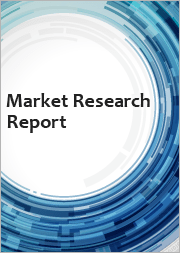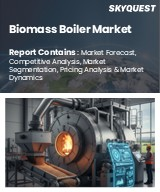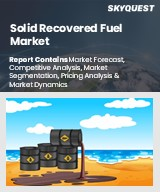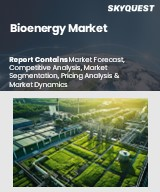
|
시장보고서
상품코드
1864820
고체 바이오매스 원료 시장 : 원료 유형별, 형태별, 기술별, 용도별, 최종사용자 산업별 - 세계 예측(2025-2032년)Solid Biomass Feedstock Market by Feedstock Type, Form, Technology, Application, End-User Industry - Global Forecast 2025-2032 |
||||||
고체 바이오매스 원료 시장은 2032년까지 CAGR 6.72%로 494억 7,000만 달러 규모로 성장할 것으로 예측되고 있습니다.
| 주요 시장 통계 | |
|---|---|
| 기준연도 2024년 | 293억 9,000만 달러 |
| 추정연도 2025년 | 313억 3,000만 달러 |
| 예측연도 2032년 | 494억 7,000만 달러 |
| CAGR(%) | 6.72% |
고체 바이오매스 의사결정, 진화하는 촉진요인, 공급망의 복잡성, 중요한 원료의 차이점을 종합적으로 전략적으로 발표
고체 바이오매스 원료의 상황은 탈탄소화 의무화, 진화하는 에너지 안보 우선순위, 순환형 바이오경제 솔루션에 대한 관심 증가로 인해 전환점을 맞이하고 있습니다. 기존에는 가용성과 상품화에 중점을 두었습니다면, 현재의 과제는 전략적 통합입니다. 원료 선택, 가공 공정 및 최종 용도의 일관성은 이제 에너지 및 산업 계획에서 필수적인 요소로 자리 잡았습니다. 이러한 변화하는 상황에서 이해관계자들은 정책 전환과 공급 측면의 동향을 바탕으로 공급망, 기술 도입 일정, 위험 노출을 재평가해야 합니다.
고체 바이오매스 조달, 전처리, 밸류체인 통합 재정의, 기술, 규제 및 상업적 변화 인사이트 분석
지속가능성 목표, 에너지 안보에 대한 우려, 기술 성숙도가 맞물려 수급 구조를 재편하는 가운데, 산업 정세는 변혁적 전환기를 맞이하고 있습니다. 펠릿화 및 토레펙션과 같은 원료 전처리 기술의 발전으로 운송 효율이 향상되고 지역적 범위가 확대되었으며, 가스화 및 열분해 기술의 혁신으로 전환 수율과 제품 유연성이 향상되었습니다. 이러한 기술 발전은 수명주기 배출량을 줄이고 발전, 열병합발전, 산업용 열 이용에서 바이오매스의 경제적 경쟁력을 강화합니다.
2025년 미국 관세가 국제 고체 바이오매스 공급망에서 무역 패턴, 조달 전략, 운영 우선순위를 어떻게 변화시켰는지에 대한 심층적인 평가
2025년 미국이 부과한 관세는 국제 원자재 유통과 하류 전환 경제에 파급되는 심각한 무역 왜곡을 초래했습니다. 특정 원료 유래 제품 및 가공 설비의 수입 비용 상승은 단기적으로 원료 공급망 현지화 및 국내 전처리 능력에 대한 투자를 가속화했습니다. 이에 따라 공급업체와 최종사용자는 관세 리스크를 줄이기 위해 조달 전략을 재검토하고, 지역 조달과 국내 물류 강화에 중점을 두고 있습니다.
원료 특성, 가공 형태, 변환 기술, 최종 용도 요구 사항을 전략적 의사결정 및 운영 설계로 연결시키는 상세한 세분화 분석
미묘한 세분화 분석을 통해 원료 유형, 형태, 기술, 용도, 최종사용자 산업별로 각기 다른 전략적 우선순위와 운영 현실을 파악할 수 있습니다. 원료의 선택은 쌀겨, 줄기, 짚과 같은 농업 잔재물부터 소똥, 돼지똥, 가금류 분뇨와 같은 동물성 폐기물까지 다양합니다. 또한 미스칸사스 스위치그라스, 버드나무 등의 에너지 작물이나 활엽수와 침엽수로 분류되는 목재도 포함됩니다. 각 원료는 수확 시기, 수분 특성, 회분 함량, 계절적 가용성이 다르기 때문에 전처리 결정과 특정 전환 경로에 대한 적합성에 영향을 미칩니다.
원료의 가용성, 정책적 제도, 인프라 구축 현황이 세계 시장에서 차별화된 기회를 어떻게 형성하고 있는지 지역 비교 분석을 통해 살펴봅니다.
지역별 동향은 원료의 가용성, 규제 요인, 인프라 구축 상황에 큰 영향을 미치며, 지역적으로 서로 다른 기회와 제약을 만들어내고 있습니다. 북미와 남미에서는 풍부한 농업 잔재물과 확립된 펠릿 생산 능력이 에너지 작물에 대한 관심 증가와 공존하고 있습니다. 한편, 지역 정책 인센티브는 산업 사용자 및 발전 사업자가 바이오매스를 연료 믹스에 통합할 수 있는 동기를 부여하고 있습니다. 물류 네트워크가 개선되고 있지만, 소비 거점까지의 거리는 여전히 경쟁의 중요한 결정 요인으로 작용하고 있습니다.
공급 확보, 품질 향상, 지속가능성에 대한 기대에 부응하는 수직적 통합, 전처리 기술 혁신, 서비스 제공을 구현하는 기업 차원의 전략적 인사이트
주요 기업은 업스트림 조달 전략과 다운스트림 변환 능력의 연계, 파트너십 추구, 원료의 유연성을 높이는 가공 기술에 대한 투자를 통해 변화하는 상황에 대응하고 있습니다. 일부 기업은 계약재배, 장기 잔재물 집약 계약, 전용 에너지 작물 플랜테이션 투자를 통해 원료를 수직계열화하여 계절적 변동 리스크를 줄이고 원료 품질관리를 강화하는 등 원료의 수직계열화를 추진하고 있습니다. 한편, 전처리 기술(펠릿화, 토레펙션) 혁신에 집중하여 운송 효율을 높이고 새로운 수출 경로를 개발하는 기업도 볼 수 있습니다.
업계 리더이 공급원 다각화, 전처리 투자 최적화, 기술 선택과 규제 및 상업적 우선순위를 일치시킬 수 있는 실용적인 전략 제안
산업 리더는 공급 안정성, 기술 유연성, 규제 적합성을 균형 있게 고려한 다각적인 전략을 추구해야 합니다. 첫째, 농업 잔재, 동물성 폐기물, 에너지 작물, 지역 목재 자원을 통합한 다양한 조달 전략을 우선시하여 단일 공급원에 대한 의존도와 계절적 리스크를 줄입니다. 동시에 펠릿화, 토레펙션 등 전처리 설비에 투자하여 운송 경제성을 개선하고 시장 접근성을 확대할 것입니다. 이러한 투자는 국내 및 국제 유통 채널에 대한 선택권을 창출하고, 관세 및 정책 변화에 대한 탄력성을 지원합니다.
정성적 인터뷰, 기술 문헌, 비교 사례 연구를 결합하여 의사결정에 초점을 맞춘 인사이트와 실용적인 지침을 도출하는 투명한 조사 방법론
본 분석은 산업계 임원, 기술자, 조달 전문가를 대상으로 한 1차 인터뷰와 기술 성능, 정책 동향, 공급망 역학에 관한 2차 문헌을 통합하여 분석했습니다. 정성적 데이터를 사용하여 원료 유형과 최종 용도에 따른 의사결정 기준을 매핑하고, 기술 평가에서는 엔지니어링 문헌과 벤더 사양을 결합하여 변환 적합성 및 규모 검토를 수행했습니다. 이번 조사에서는 진화하는 지속가능성 요구사항과 조달 및 운영에 미치는 영향을 파악하기 위해 추적성 및 수명주기 평가 방법에 중점을 두었습니다.
조달 및 전처리 기술 선택의 전략적 통합이 고체 바이오매스의 복원력과 가치 창출을 어떻게 결정하는지 강조하는 결론적 결론을 제시
결론적으로 고형 바이오매스 원료 부문은 원료 조달에서 원료 선택 및 전처리 기술 정합성이 상업적 성공을 결정하는 전략적으로 구축된 밸류체인로 이동하고 있습니다. 정책적 압력, 관세로 인한 무역 전환, 기술 성숙의 복합적인 힘은 현지화, 수직 통합, 고에너지 밀도 전처리에 대한 투자를 가속화하고 있습니다. 원료 포트폴리오를 적극적으로 다양화하고, 가공 능력에 투자하며, 변환 기술 선택을 최종사용자의 요구사항에 맞게 조정하는 조직이 탈탄소화의 약속을 이동하고 장기적인 가치를 창출할 수 있는 가장 좋은 위치에 있을 것으로 보입니다.
목차
제1장 서문
제2장 조사 방법
제3장 개요
제4장 시장 개요
제5장 시장 인사이트
제6장 미국 관세의 누적 영향 2025
제7장 AI의 누적 영향 2025
제8장 고체 바이오매스 원료 시장 : 원료 유형별
- 농업잔사
- 왕겨
- 줄기
- 짚
- 동물성 폐기물
- 소 거름
- 돼지 거름
- 가금류 분뇨
- 에너지 작물
- Miscanthus
- Switchgrass
- 버드나무
- 목재
- 활엽수
- 침엽수
제9장 고체 바이오매스 원료 시장 : 형태별
- Briquettes
- 칩스
- 펠릿
제10장 고체 바이오매스 원료 시장 : 기술별
- 가스화
- 기류상
- 고정상
- 유동층
- 펠릿화
- 열분해
- 고속 열분해
- 저속 열분해
- 반탄화
제11장 고체 바이오매스 원료 시장 : 용도별
- 열병합발전
- 열공급
- 산업용 보일러
- 화학
- 식품 및 음료
- 펄프 및 제지
- 발전
- 주택 난방
제12장 고체 바이오매스 원료 시장 : 최종사용자 산업별
- 농업
- 상용
- 제조업
- 화학
- 식품 및 음료
- 펄프 및 제지
- 발전소
- 주택
제13장 고체 바이오매스 원료 시장 : 지역별
- 아메리카
- 북미
- 라틴아메리카
- 유럽, 중동 및 아프리카
- 유럽
- 중동
- 아프리카
- 아시아태평양
제14장 고체 바이오매스 원료 시장 : 그룹별
- ASEAN
- GCC
- EU
- BRICS
- G7
- NATO
제15장 고체 바이오매스 원료 시장 : 국가별
- 미국
- 캐나다
- 멕시코
- 브라질
- 영국
- 독일
- 프랑스
- 러시아
- 이탈리아
- 스페인
- 중국
- 인도
- 일본
- 호주
- 한국
제16장 경쟁 구도
- 시장 점유율 분석, 2024년
- FPNV 포지셔닝 매트릭스, 2024년
- 경쟁 분석
- Enviva Partners, LP
- Graanul Invest AS
- Pinnacle Renewable Energy Inc.
- Drax Group plc
- Pacific BioEnergy Corporation
- West Fraser Timber Co. Ltd.
- International Paper Company
- Stora Enso Oyj
- UPM-Kymmene Corporation
- Mondi plc
The Solid Biomass Feedstock Market is projected to grow by USD 49.47 billion at a CAGR of 6.72% by 2032.
| KEY MARKET STATISTICS | |
|---|---|
| Base Year [2024] | USD 29.39 billion |
| Estimated Year [2025] | USD 31.33 billion |
| Forecast Year [2032] | USD 49.47 billion |
| CAGR (%) | 6.72% |
Comprehensive strategic introduction framing the evolving drivers, supply chain complexities, and critical feedstock distinctions shaping solid biomass decisions
The solid biomass feedstock landscape is at an inflection point driven by decarbonization mandates, evolving energy security priorities, and accelerating interest in circular bioeconomy solutions. While historical emphasis focused on availability and commoditization, the current imperative is strategic integration: feedstock selection, processing pathways, and end-use alignment are now integral to energy and industrial planning. This evolving context requires stakeholders to reassess supply chains, technology adoption timelines, and risk exposures in light of policy shifts and supply-side dynamics.
Consequently, decision-makers must evaluate feedstock ecosystems with greater granularity. Considerations span agricultural residue varieties such as husk, stalks, and straw; animal waste categories including cattle manure, pig manure, and poultry litter; energy crops like miscanthus, switchgrass, and willow; and wood resources differentiated by hardwood and softwood. Understanding these distinctions informs logistics, preprocessing needs, and compatibility with conversion technologies, thereby shaping both capital deployment and operational strategies.
Insightful analysis of the transformative technological, regulatory, and commercial shifts redefining sourcing, preprocessing, and value chain integration in solid biomass
The landscape is undergoing transformative shifts as sustainability targets, energy security concerns, and technological maturation converge to reshape demand and supply dynamics. Advances in feedstock preprocessing, such as pelletization and torrefaction, are increasing transport efficiency and broadened geographical reach, while gasification and pyrolysis innovations are improving conversion yields and product flexibility. These technology gains reduce lifecycle emissions and enhance the economic competitiveness of biomass across power generation, combined heat and power, and industrial heat applications.
At the same time, policy frameworks and corporate procurement criteria are elevating requirements for traceability, sustainability certifications, and lifecycle accounting. This has prompted greater vertical integration across the value chain and has incentivized feedstock diversification strategies that balance agricultural residues, animal wastes, dedicated energy crops, and wood sources. As a result, stakeholders are shifting from transactional sourcing to strategic partnerships that prioritize long-term feedstock security, compliance, and cost predictability.
Detailed assessment of how 2025 United States tariffs altered trade patterns, procurement strategies, and operational priorities across international solid biomass supply chains
The imposition of tariffs by the United States in 2025 has introduced material trade distortions that ripple across international feedstock flows and downstream conversion economics. Increased import costs for certain feedstock-derived products and processing equipment have accelerated near-term efforts to localize feedstock supply chains and invest in domestic preprocessing capacity. Consequently, suppliers and end users are recalibrating sourcing strategies to mitigate tariff exposure, with an emphasis on regional procurement and strengthened domestic logistics.
These adjustments have multifaceted operational implications. For exporters, tariffs have prompted a reassessment of pricing strategies and contractual terms, leading some to seek alternative markets or to invest in value-added processing domestically to preserve margins. For buyers, tariffs have incentivized substitution toward locally abundant materials such as agricultural residues, animal wastes, and domestically cultivated energy crops. Across the board, tariffs have increased the emphasis on efficiency improvements through technologies like pelletization and torrefaction, which can offset transport and tariff-related cost pressures by improving energy density and reducing supply chain friction. In sum, the tariff environment has accelerated structural shifts toward regionalization, technological upgrading, and contractual resilience.
In-depth segmentation insights connecting feedstock characteristics, processing forms, conversion technologies, and end-use requirements to strategic decision-making and operational design
A nuanced segmentation view reveals distinct strategic priorities and operational realities across feedstock types, forms, technologies, applications, and end-user industries. Feedstock choices range from agricultural residue categories such as husk, stalks, and straw to animal waste types including cattle manure, pig manure, and poultry litter; they also encompass energy crops like miscanthus, switchgrass, and willow and wood varieties separated into hardwood and softwood. Each feedstock exhibits unique harvesting windows, moisture characteristics, ash content, and seasonal availability that influence preprocessing decisions and suitability for specific conversion routes.
Form factors such as briquettes, chips, and pellets determine handling, storage, and transport economics, while technology pathways including gasification, pelletization, pyrolysis, and torrefaction interact with feedstock characteristics to shape conversion efficiency and end-product portfolios. Within gasification, options such as entrained flow, fixed bed, and fluidized bed reactors present trade-offs in scale, feedstock tolerance, and syngas quality, whereas pyrolysis choices between fast and slow pyrolysis affect liquid yields and char properties. Application contexts-combined heat and power, heat generation, industrial boilers in chemical, food and beverage, and pulp and paper sectors, power generation, and residential heating-further narrow technical and contractual requirements. Finally, end-user industry demands across agriculture, commercial, manufacturing including chemical, food and beverage, and pulp and paper segments, power plants, and residential consumers define performance metrics, procurement cycles, and sustainability expectations. Taken together, these segmentation layers create a complex matrix that guides capital deployment, operational design, and commercial contracting.
Comparative regional analysis highlighting how feedstock availability, policy regimes, and infrastructure maturity shape differentiated opportunities across global markets
Regional dynamics materially influence feedstock availability, regulatory drivers, and infrastructure readiness, creating geographically differentiated opportunities and constraints. In the Americas, abundant agricultural residues and established pellet production capacity coexist with growing interest in energy crops, while regional policy incentives continue to motivate industrial and power generation users to integrate biomass into their fuel mixes. Logistic networks are improving, but distance to consumption hubs remains a key determinant of competitiveness.
In Europe, Middle East & Africa, diverse regulatory regimes and strong decarbonization policies create both market pull and complexity. European markets often lead in certification and sustainability standards, which raises the bar for traceability and lifecycle accounting. Meanwhile, the Middle East and Africa present a mix of emerging demand centers and feedstock supply potential, with infrastructure gaps and financing constraints shaping project viability. In the Asia-Pacific region, rapid industrial growth and large-scale agricultural production produce significant volumes of residues, while technological adoption is accelerating for pelletization and gasification to meet both industrial and residential heating needs. Across regions, investment patterns, policy incentives, and infrastructure maturity combine to determine which feedstock and technology pairings are most viable for local deployment.
Strategic company-level insights showcasing vertical integration, preprocessing innovation, and service offerings that secure supply, improve quality, and meet sustainability expectations
Leading companies are responding to the evolving landscape by aligning upstream sourcing strategies with downstream conversion capabilities, pursuing partnerships, and investing in processing technologies that enhance feedstock flexibility. Some firms are integrating vertically to secure feedstock through contractual farming arrangements, long-term residue aggregation deals, or investments in dedicated energy crop plantations, thereby reducing exposure to seasonal volatility and improving feedstock quality control. Others are focusing on innovation in preprocessing-pelletization and torrefaction-to increase transport efficiency and open new export corridors.
At the technology and service level, players that specialize in modular gasification systems, torrefaction modules, and scalable pyrolysis units are gaining traction as developers and end users seek cost-effective, scalable solutions. Sales and commercial teams are increasingly offering sustainability guarantees and traceability tools, reflecting buyer demand for verified sourcing. Additionally, service providers offering logistics optimization, biomass quality testing, and lifecycle emissions modeling are emerging as critical enablers for projects seeking to demonstrate compliance with evolving regulatory and corporate standards.
Actionable strategic recommendations for industry leaders to secure diversified supplies, optimize preprocessing investments, and align technology choices with regulatory and commercial priorities
Industry leaders should pursue a multipronged strategy that balances supply security, technological flexibility, and regulatory alignment. First, prioritize diversified sourcing strategies that integrate agricultural residues, animal wastes, energy crops, and regional wood resources to reduce single-source exposure and seasonal risk. Concurrently, invest in preprocessing capabilities such as pelletization and torrefaction to improve transport economics and broaden market access. These investments create optionality in both domestic and international sales channels and support resilience against tariff and policy shifts.
Second, align technology choices with end-use demands by matching feedstock properties to conversion pathways: select gasification configurations-entrained flow, fixed bed, or fluidized bed-based on scale, feedstock variability, and syngas quality needs, and choose pyrolysis regimes that optimize liquid and char yields for targeted applications. Third, enhance commercial resiliency through long-term offtake agreements and integrated logistics solutions that include quality assurance and traceability. Finally, engage proactively with policymakers and certification bodies to shape practicable sustainability criteria, ensuring that investment decisions are future-proofed against evolving regulatory expectations.
Transparent research methodology explaining how qualitative interviews, technical literature, and comparative case studies were combined to produce decision-focused insights and practical guidance
This analysis synthesizes primary interviews with sector executives, engineers, and procurement specialists alongside secondary literature on technology performance, policy developments, and supply chain dynamics. Qualitative data were used to map decision criteria across feedstock types and end-use applications, while technology assessments incorporated engineering literature and vendor specifications to evaluate conversion suitability and scale considerations. The research emphasized traceability and lifecycle assessment approaches to capture evolving sustainability requirements and their implications for sourcing and operations.
Where possible, comparative case studies were used to illustrate successful strategies for feedstock aggregation, preprocessing deployment, and tariff mitigation. Triangulation across sources ensured robustness of findings, with particular attention paid to operational realities such as moisture management, contamination risks, and logistics constraints that materially affect commercial outcomes. This methodological blend provides a practical, decision-focused lens for stakeholders considering investments or strategic shifts in the solid biomass value chain.
Concise concluding insights underscoring how strategic integration of sourcing, preprocessing, and technology choices will define resilience and value creation in solid biomass
In conclusion, the solid biomass feedstock sector is transitioning from ad hoc sourcing to strategically engineered value chains where feedstock selection, preprocessing, and technology alignment determine commercial success. The combined forces of policy pressure, tariff-induced trade shifts, and technology maturation are accelerating localization, vertical integration, and investment in energy-dense preprocessing. Organizations that proactively diversify feedstock portfolios, invest in processing capabilities, and align conversion choices with end-user requirements will be best positioned to capture long-term value while meeting decarbonization commitments.
Looking forward, resilience will depend on the ability to adapt contracting models, secure traceable supply, and deploy flexible technologies that can process a range of feedstocks. As stakeholders implement these changes, collaboration across growers, aggregators, technology providers, and end users will become increasingly important to unlock scalable pathways for low-carbon heat and power as well as industrial decarbonization.
Table of Contents
1. Preface
- 1.1. Objectives of the Study
- 1.2. Market Segmentation & Coverage
- 1.3. Years Considered for the Study
- 1.4. Currency & Pricing
- 1.5. Language
- 1.6. Stakeholders
2. Research Methodology
3. Executive Summary
4. Market Overview
5. Market Insights
- 5.1. Rising demand for advanced pelletization processes to enhance biomass energy density and transport efficiency
- 5.2. Integration of supply chain digitization and IoT-enabled tracking for solid biomass feedstock logistics optimization
- 5.3. Expansion of agricultural waste conversion initiatives driven by biorefinery partnerships and sustainability mandates
- 5.4. Increasing investment in offshore biomass sourcing to diversify feedstock supply and reduce regional shortages
- 5.5. Development of high-yield energy crops optimized for variable climates using gene editing and agronomic innovations
- 5.6. Implementation of carbon credit frameworks incentivizing low-emission biomass procurement and trading schemes
- 5.7. Shift towards decentralized biomass processing units to minimize transport costs and improve feedstock utilization rates
- 5.8. Adoption of circular economy models emphasizing urban wood waste recycling for solid biomass energy generation
- 5.9. Emergence of hydrothermal carbonization technology for converting wet biomass residues into high-grade char materials
6. Cumulative Impact of United States Tariffs 2025
7. Cumulative Impact of Artificial Intelligence 2025
8. Solid Biomass Feedstock Market, by Feedstock Type
- 8.1. Agricultural Residue
- 8.1.1. Husk
- 8.1.2. Stalks
- 8.1.3. Straw
- 8.2. Animal Waste
- 8.2.1. Cattle Manure
- 8.2.2. Pig Manure
- 8.2.3. Poultry Litter
- 8.3. Energy Crops
- 8.3.1. Miscanthus
- 8.3.2. Switchgrass
- 8.3.3. Willow
- 8.4. Wood
- 8.4.1. Hardwood
- 8.4.2. Softwood
9. Solid Biomass Feedstock Market, by Form
- 9.1. Briquettes
- 9.2. Chips
- 9.3. Pellets
10. Solid Biomass Feedstock Market, by Technology
- 10.1. Gasification
- 10.1.1. Entrained Flow
- 10.1.2. Fixed Bed
- 10.1.3. Fluidized Bed
- 10.2. Pelletization
- 10.3. Pyrolysis
- 10.3.1. Fast Pyrolysis
- 10.3.2. Slow Pyrolysis
- 10.4. Torrefaction
11. Solid Biomass Feedstock Market, by Application
- 11.1. Combined Heat And Power
- 11.2. Heat Generation
- 11.3. Industrial Boilers
- 11.3.1. Chemical
- 11.3.2. Food And Beverage
- 11.3.3. Pulp And Paper
- 11.4. Power Generation
- 11.5. Residential Heating
12. Solid Biomass Feedstock Market, by End-User Industry
- 12.1. Agriculture
- 12.2. Commercial
- 12.3. Manufacturing
- 12.3.1. Chemical
- 12.3.2. Food And Beverage
- 12.3.3. Pulp And Paper
- 12.4. Power Plants
- 12.5. Residential
13. Solid Biomass Feedstock Market, by Region
- 13.1. Americas
- 13.1.1. North America
- 13.1.2. Latin America
- 13.2. Europe, Middle East & Africa
- 13.2.1. Europe
- 13.2.2. Middle East
- 13.2.3. Africa
- 13.3. Asia-Pacific
14. Solid Biomass Feedstock Market, by Group
- 14.1. ASEAN
- 14.2. GCC
- 14.3. European Union
- 14.4. BRICS
- 14.5. G7
- 14.6. NATO
15. Solid Biomass Feedstock Market, by Country
- 15.1. United States
- 15.2. Canada
- 15.3. Mexico
- 15.4. Brazil
- 15.5. United Kingdom
- 15.6. Germany
- 15.7. France
- 15.8. Russia
- 15.9. Italy
- 15.10. Spain
- 15.11. China
- 15.12. India
- 15.13. Japan
- 15.14. Australia
- 15.15. South Korea
16. Competitive Landscape
- 16.1. Market Share Analysis, 2024
- 16.2. FPNV Positioning Matrix, 2024
- 16.3. Competitive Analysis
- 16.3.1. Enviva Partners, LP
- 16.3.2. Graanul Invest AS
- 16.3.3. Pinnacle Renewable Energy Inc.
- 16.3.4. Drax Group plc
- 16.3.5. Pacific BioEnergy Corporation
- 16.3.6. West Fraser Timber Co. Ltd.
- 16.3.7. International Paper Company
- 16.3.8. Stora Enso Oyj
- 16.3.9. UPM-Kymmene Corporation
- 16.3.10. Mondi plc







